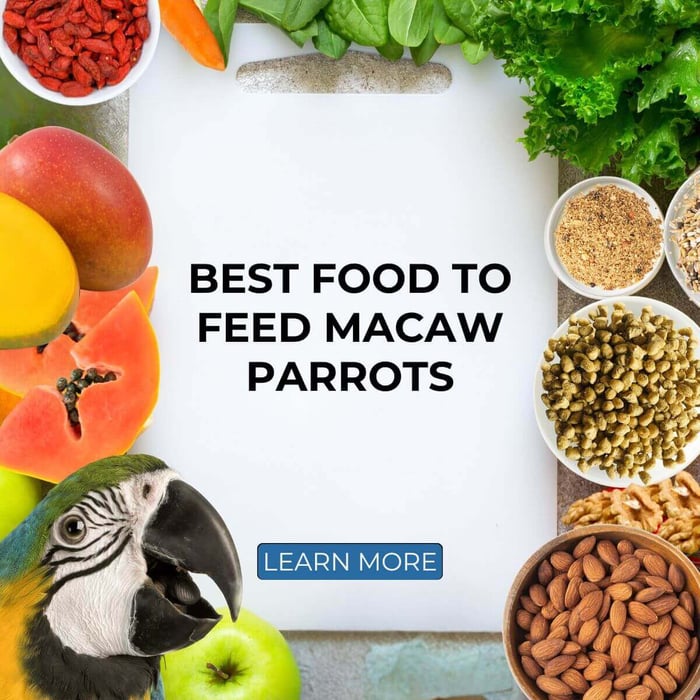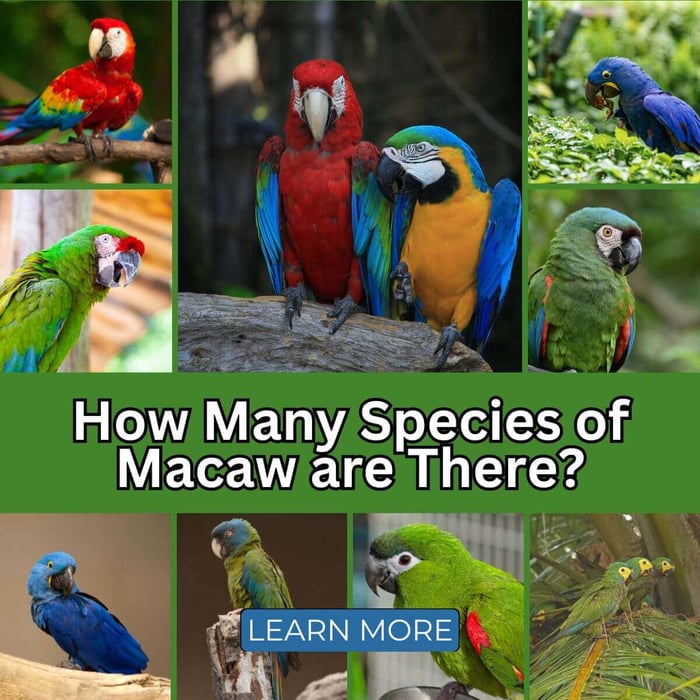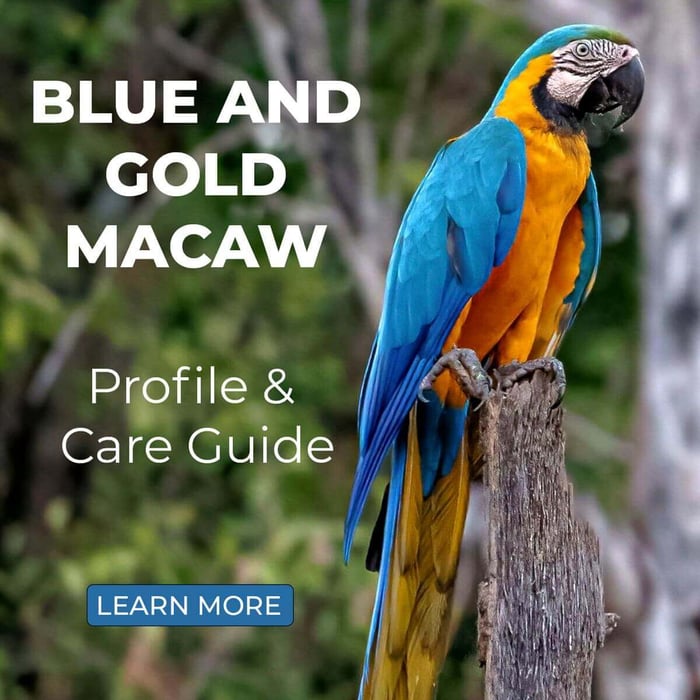Top 10 Fruits for Macaw Parrots
Macaw parrots are known for their vibrant plumage, high intelligence, and energetic personalities. To keep these magnificent birds healthy and happy, providing them with a balanced and nutritious diet is essential. While high-quality pellets and fresh vegetables should make up the bulk of a macaw's daily intake, fruits can be an excellent addition, offering natural sugars, vitamins, and hydration. But not all fruits are created equal. Some are better suited to a macaw's dietary needs than others. In this blog post, we'll explore the best fruits for macaw parrots, why they're beneficial, how to serve them safely, and how much fruit your macaw should eat.
Why Fruits Are Important for Macaws
Fruits for macaw parrots provide essential nutrients that contribute to a macaw's overall well-being. Rich in vitamins, antioxidants, and water, fruits can support immune function, feather health, and digestion. They also offer variety in texture and taste, which helps keep your parrot mentally stimulated.
However, fruits should be offered in moderation. Because of their sugar content, they should make up no more than 10-15% of your macaw's overall diet. Too much fruit can lead to weight gain and nutritional imbalances. It's also crucial to choose safe, nutritious options and avoid those that can be harmful.
Top 10 Fruits for Macaws
Here are the best fruits for macaw parrots to include in their diet:
1. Apples (Always Remove Seeds)
Apples are a great source of fibre and vitamin C. They help support digestive health and can be a crunchy, satisfying treat. Remember to always remove the seeds, as they contain cyanide, which is toxic to birds.
2. Bananas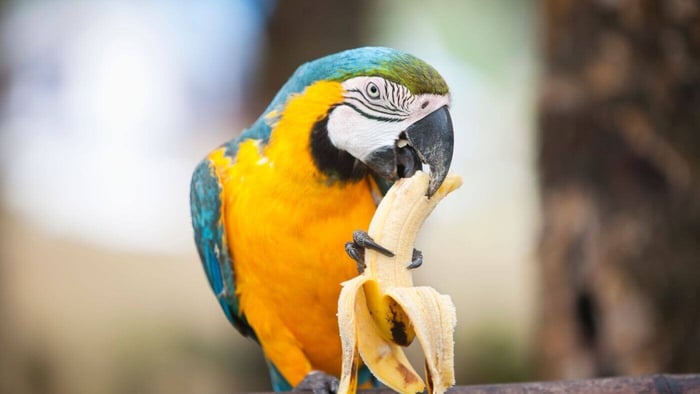
Bananas are rich in potassium and vitamin B6. They're soft and easy to eat, and most macaws love their texture and sweetness. Bananas can also be useful as a training reward or bonding treat.
3. Berries (Strawberries, Blueberries, Raspberries, Blackberries)
These colourful fruits are antioxidant powerhouses. They contain vitamin C and fibre, helping to support the immune system. Their small size makes them easy to serve, but their juices can stain feathers and perches, so offer them in moderation.
4. Grapes (Seedless Only)
Sweet and juicy, grapes are hydrating and provide vitamins A and K. They're also a favourite for foraging games. Because they're high in sugar, limit them to occasional treats.
5. Papaya
Papaya is rich in vitamin A and contains digestive enzymes that can aid in nutrient absorption. This tropical fruit is ideal for macaws, especially those with sensitive stomachs. Always remove the seeds before offering.
6. Mango (Peeled and Pitted)
Mangoes are packed with vitamins A and E and can help maintain healthy skin and feathers. Peel and remove the pit before feeding, and serve in small, manageable chunks.
7. Pomegranate
Pomegranate seeds (arils) are fun for macaws to pick out and eat. They're full of antioxidants, vitamin K, and fibre. This fruit is messy but worth the clean-up for the enrichment it provides.
8. Melons (Watermelon, Cantaloupe, Honeydew)
Melons are hydrating and low in calories, making them an excellent choice for hot days. Remove all seeds and the rind before serving. Their high water content can help with hydration.
9. Pineapple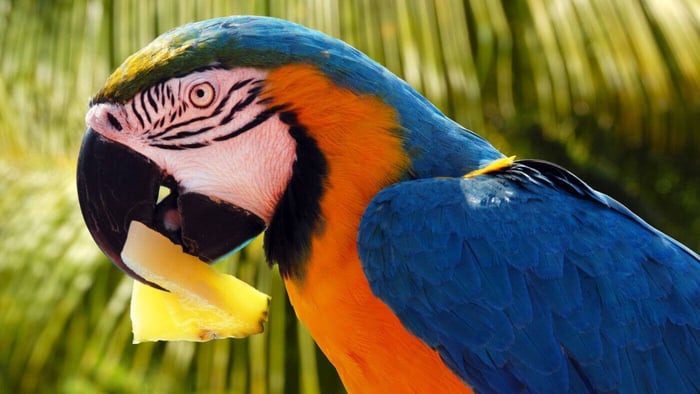
A tangy tropical fruit, pineapple is high in vitamin C and bromelain, an enzyme that supports digestion. Remove the skin and core, and offer in small amounts due to its acidity.
10. Kiwi (Peeled)
Kiwi provides vitamin C, vitamin K, and dietary fibre. Its tangy flavour is enjoyed by many parrots, but it should be introduced gradually to avoid upsetting sensitive stomachs.
Serving Fruits Safely to Macaws
When feeding fruits for macaw parrots, follow these safety tips to ensure their health and enjoyment:
- Wash all fruits thoroughly, even if you plan to peel them.
- Cut fruits into appropriate sizes to avoid choking hazards.
- Remove any inedible parts, such as seeds, pits, and tough skins.
- Monitor portion sizes to ensure fruits remain a small part of the overall diet.
- Remove uneaten fruit after 1-2 hours to prevent spoilage and attractants for pests.
Offering fruit in creative ways can also be mentally stimulating. Try placing small pieces in foraging toys or hanging fruit slices from bird-safe skewers to encourage natural behaviours.
Fruits to Avoid
Not all fruits for macaw parrots are safe. Avoid the following:
- Avocado: Contains persin, which is toxic to birds.
- Rhubarb: Contains oxalic acid, which can be harmful.
- Fruit seeds and pits: Especially from apples, cherries, peaches, and plums—these can contain cyanide.
- Mouldy or overripe fruit: Can carry harmful bacteria or toxins.
Always consult an avian vet or a reputable bird care source if you're unsure about a particular fruit.
Creating a Balanced Fruit Routine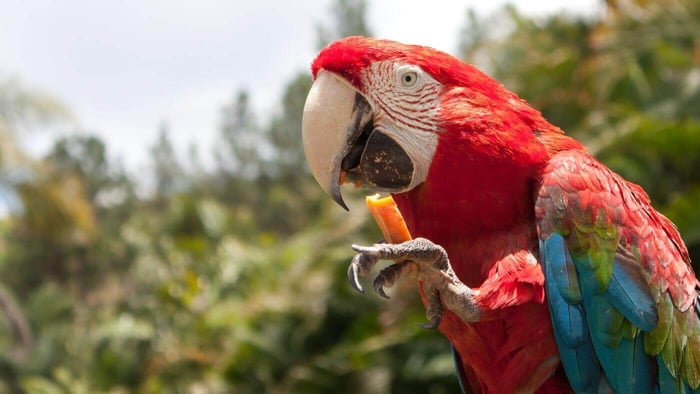
Rather than offering the same fruits for macaw parrots every day, rotate the selection to provide variety and a broad nutrient profile. You might offer an apple and a banana one day, then switch to a kiwi and a papaya the next. Seasonal fruits are a good way to add diversity and reduce costs.
Some macaws have favourites, but it's beneficial to expose them to different fruits from a young age to avoid picky eating habits. If your bird is reluctant to try something new, try presenting it alongside a favourite food or modelling the behaviour yourself—many parrots will be curious if they see you eating it first!
Final Thoughts: Fruit is a Treat, Not the Main Course
While fruits for macaw parrots are a fantastic addition to your bird's diet, remember they are supplements, not staples. The core of your macaw's daily nutrition should consist of a balanced pellet diet (like Hagen Hari Tropican or Askio Nature Complete Parrot Food), fresh vegetables, and a moderate amount of healthy nuts and seeds.
Fruits shine brightest when they are used to create interest, provide hydration, and deliver essential nutrients in a colourful, fun way. By choosing the right fruits for macaw parrots and feeding them responsibly, you can help your macaw thrive while making mealtimes a highlight of their day.
Looking for fruit-based parrot treats or advice on nutrition? Visit Parrot Essentials for high-quality food, feeding tips, and expert guidance tailored to your feathered friend.
FAQs
How much fruit should I feed my macaw each day?
Fruits should make up no more than 10–15% of your macaw's overall diet. A few small pieces daily are usually enough.
Can macaws eat fruit seeds or pits?
No. Avoid seeds and pits, especially from apples, cherries, peaches, and plums, as they can contain cyanide, which is toxic to birds.
How can I encourage my macaw to try new fruits?
Try mixing new fruits with their favourites, offering small pieces during playtime, or eating the fruit in front of them—many parrots mimic human behaviour.
What fruits should I never feed my macaw?
Avoid avocado, rhubarb, mouldy fruit, and fruit seeds/pits, as they can be toxic or harmful to your bird’s health.
Do I need to peel fruits before giving them to my macaw?
Yes, it's best to wash and peel fruits like mangoes, kiwis, and melons and make them easier to digest.

